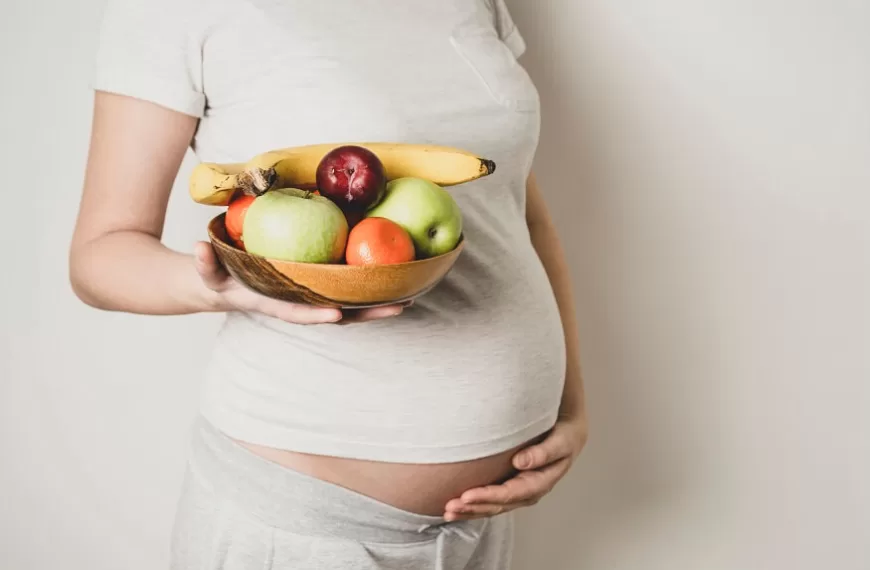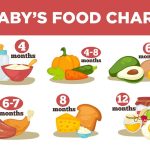Every expecting mother’s pregnancy is a magnificent аdventure filled with expectation, excitement, and, of course, physical changes. Pregnancy nutrition is a key component of this journey. As the fetus develops, the nutritional needs during pregnancy increase, making a well-balanced diet for pregnancy essential. We shall explore the significance of nutrition throughout pregnancy and how it affects the result for both the mother and the unborn child in this post.
- Pregnancy Nutrition: The Foundation for Health
- Crafting a Balanced Diet for Pregnancy
- The Shift in Nutritional Needs During Pregnancy
- Weight Gain and Its Implication
- The Importance of Hydration
- Understanding Cravings and Moderation
- Supplements: A Supporting Role in Pregnancy Nutrition
- Active Lifestyle Complementing Nutrition
What is Pregnancy Nutrition?
Pregnancy nutrition encompasses the dietary and supplementary requirements that sustain both the growing baby and the mother’s changing body. It is the fuel that ensures that every cell, organ, and tissue of the unborn child develops well. Additionally, it guarantees that the mother stays strong and healthy throughout her pregnancy and after.
Why is it Crucial?
It is crucial to maintain a healthy diet when expecting. A healthy birth weight is ensured and the chance of birth abnormalities is decreased by proper nutrition. Additionally, it reduces the chance that the mother would experience problems during delivery.
For instance, Sarah, a young woman from Manchester, experienced complications during her first pregnancy due to a lack of adequate nutrition. In her second pregnancy, she prioritized her nutritional needs during pregnancy, resulting in a smoother delivery and a healthier baby.
A balanced diet for pregnancy does not merely involve eating more but eating right. This diet combines macronutrients and micronutrients that are crucial for both the mother’s health and the growth of the child.
Components of a Balanced Diet:
Proteins: Essential for the growth of the baby’s cells. Incorporate lean meats, eggs, tofu, beans, and pulses.
Calcium: Ensures the baby’s bones are strong. Dairy products, fortified plant-based milk, and leafy greens are rich sources.
Iron: Prevents anemia. Red meat, lentils, and fortified cereals are prime sources.
Folic Acid: Reduces the risk of neural tube defects. Found in leafy greens, citrus fruits, and fortified bread.
Omega-3 Fatty Acids: Vital for the baby’s brain development. Oily fish, chia seeds, and walnuts are excellent sources for Omega-3 fatty acids.
The nutritional needs during pregnancy undergo a marked change. As the baby grows, there’s an increased demand for certain nutrients. For instance, during the first trimester, folic acid is crucial. By the third trimester, iron and protein intake become even more significant.
Let’s consider a real-world example. Priya, a London-based dietitian, found herself advising her pregnant clients to incorporate more iron in their third trimester. When she herself was expecting, she experienced firsthand the fatigue linked to reduced iron levels. By heeding her own advice and adjusting her diet, she effectively combatted this fatigue.
An inevitable part of pregnancy is weight gain. It’s a sign of the baby’s growth and the body’s preparation for birth and breastfeeding. However, how much weight one gains and how swiftly can directly affect pregnancy outcomes.
Why Controlled Weight Gain Matters:
A weight gain within the recommended range decreases the chances of complications like gestational diabetes, preterm birth, and cesarean delivery. Conversely, excessive weight gain can lead to high blood pressure and increased labor complications.
Hence, understanding the importance of nutrition during pregnancy and ensuring a balanced diet for pregnancy can regulate weight gain, striking a balance between the needs of the baby and the health of the mother.
While much emphasis is placed on food intake, the importance of hydration during pregnancy should not be overlooked. It is the placenta which delivers essential nutrients to the unborn child, and water plays an important role in its formation. It also supports the amniotic sac. Common pregnancy symptoms like constipation and urinary tract infections can be avoided by staying hydrated.
A simple guideline is to drink at least 8 to 12 glasses of water daily. But it’s not just about quantity; the quality of water is equally crucial. Opting for filtered water can reduce exposure to certain harmful agents.
Infused Water – A Refreshing Alternative:
For those who might find drinking plain water tedious, infused water serves as a delightful option. Adding slices of fruits like oranges, strawberries, or cucumbers to enhance the flavors whilst adding vitamins and minerals to the diet.
Almost every pregnant woman will attest to experiencing cravings at some point during her pregnancy. These cravings can range from salty chips to sweet chocolates, and occasionally, even more peculiar combinations!
While it’s okay to indulge occasionally, understanding the nutritional impact of these cravings is essential. For instance, giving in to sugary cravings too frequently can lead to excessive weight gain and the risk of gestational diabetes. On the other hand, excessively salty foods can lead to increased blood pressure.
Balancing Cravings with Nutrition:
A handy strategy is to find healthier alternatives. Craving something sweet? Consider a fruit salad sprinkled with cinnamon or a smoothie. If it’s the crunch of chips that’s enticing, celery or carrot sticks with a tasty dip might suffice.
While aiming for a balanced diet for pregnancy, sometimes, due to dietary restrictions or other factors, one might fall short of certain nutrients. This is where supplements can play a supportive role.
Folic acid, iron, and calcium are commonly recommended supplements. However, it’s imperative to speak with a medical expert before beginning any supplementation. They can help with dosage recommendations and check for any potential interactions or adverse effects.
A Note on Herbal Supplements:
With the rising popularity of natural remedies, many expectant mothers might be drawn to herbal supplements. Here, it’s crucial to use caution.
The use of some herbs during pregnancy can possibly cause difficulties.
Nutrition is just one piece of the puzzle. Exercise can enhance mood, decrease excessive weight gain, and help with digestion. In essence, while a healthy diet during pregnancy is essential, combining it with an active way of life assures overall well being. In conclusion, pregnancy is a profound experience, and diet plays a critical part in this journey.
It’s become evident as we’ve dug into the significance of nutrition during pregnancy that every meal, snack, and every sip matters. For these nine months, mothers aren’t just eating for two; they’re nurturing the next generation.
In aligning with this philosophy, EuroKids Preschool passionately advocates for the holistic well-being of both mothers and children. After all, a healthy beginning paves the way for a thriving future, a belief EuroKids stands firmly by.
















